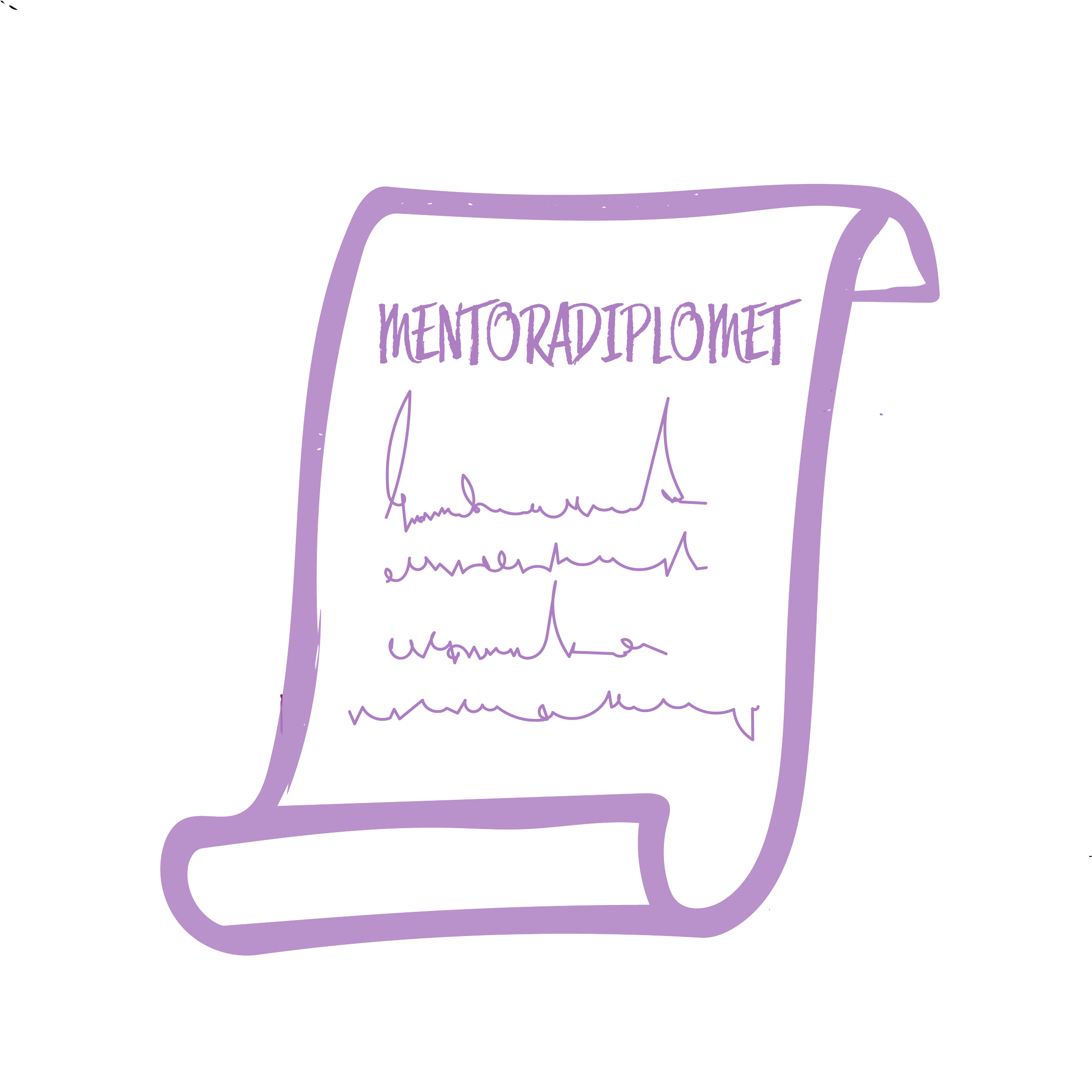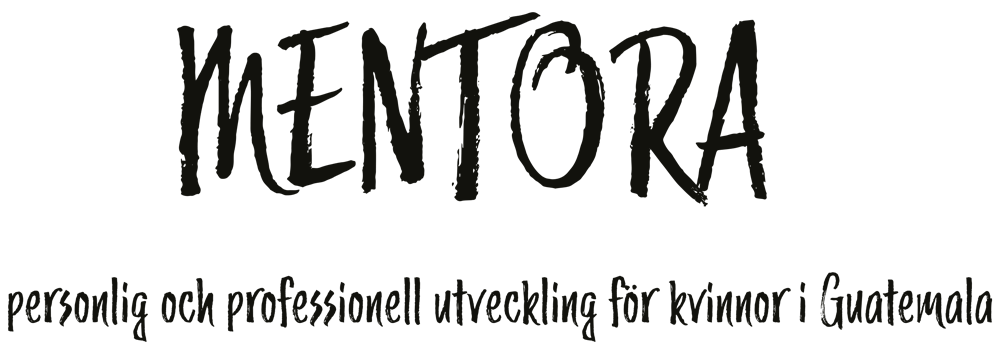
The MENTORA Diploma
Have you written a high school examination project about girls’ or women’s rights during the school year of 20/21? Then you are able to nominate your project to compete for the MENTORA diploma!
WHAT IS THE MENTORA DIPLOMA?
Through searching for a deeper, holistic understanding and historical basis for global development issues, MENTORA wants to encourage high school students to act and influence society from a rights-based perspective. The MENTORA diploma pays attention specifically to high school exam projects with the intention of strengthening young individuals’ perception of their importance in civil society.
The diploma is handed out yearly to the exam project which in an analytical, innovative and educative way, highlights one or several of the following areas:
- Women’s rights and reproductive rights (e.g. equality, labour market, discrimination, stereotypical gender roles, sexual health)
- Women’s situation in Guatemala and/-or Central America
- Fair access to education and the Global Goals 4, 5 and 10, with a focus on girls’ and women’s rights
It is also an advantage if the essay contains a post-colonial analysis in relation to the chosen subject.
The MENTORA diploma is handed out during the Swedish Forum for Human Rights HR-days on the 6-7 December. The winning contribution is presented here on MENTORA’s web site and on our social media.
READ THE INTERVIEW WITH THE WINNER 2020 – KARIN HÄGGLUND-LEVINER!
The MENTORA diploma in 2020 was given to Karin Hägglund-Leviner for her well-structured and well-reasoned study of young women’s conditions in Guatemala: “The right to life or the right to choose: the view on abortion, contraception and reproductive health in Guatemala”. Now, she wants to continue engaging in women’s rights.
MENTORA called 2020’s winner Karin Hägglund-Leviner.
Congratulations on your award! How do you feel?
– I was so happy and honoured! I wrote to all of my family, Karin laughs. It already felt great to present my essay on MENTORA’s training day in October and this is even bigger.
Tell us about your High School Essay – why did you choose the title “The right to life or the right to choose”?
– I graduated from Kungsholmen High School in spring. As a part of a course in power and influence we travelled to Guatemala in February to collect material for our exam projects. I chose to explore the view on abortion and contraception, as well as the repoductive health of the country. The essay is founded on interviews with young girls and a visit to the women’s organization Tierra Viva and conversations with their participants.
The title, Karin tells us, is built on two parts. The right to life is a Guatemalan legislation used to motivate that abortion is wrong. The fetus’ right to life is prioritized over the woman’s right to her body. The right to choose, that is the woman’s right to choose, is put in opposition to this. To be allowed to choose contraception, abortion and the life you want to live. Because whose life are you referring to when you speak of the right to life? Abortion in Guatemala today is allowed only if the mother’s life is in danger because of the pregnancy, and not even if the mother is under-aged is the doctor allowed to perform an abortion other than to save the mother’s life.
The situation for women in Guatemala today is characterized by inequality. Karin means that her investigation of course only presents a small selection of some girl’s view on abortion and contraception. However, it says something about the prevailing norms in society. On the one hand, young girls are expected not to have sex and not know anything about, or use, contraception; at the same time they are expected to become mothers later in life. In a lot of cases without basic knowledge of reproductive health, Karin means.
What was the most interesting part that you learned?
– Even if there are strict anti-abortion laws, abortions will be carried through anyway. That is something I had probably realised before, but it leads to so many consequences. Abortion complications, damages or death. Furthermore, abortion can also lead to many other consequences which affects the women, sometimes for the rest of their life. For example missed schooling, affected finances and exclusion. Not to mention the consequences of being forced to keep a child. Reproductive rights affect other rights, says Karin.
The trip to Guatemala and the work with the essay also entailed some challenges. For Karin one of the biggest challenges was conducting the interviews. Not just because she does not speak spanish, that was solved with help from classmates and teachers. It was difficult to know how the questions would be received since reproductive health, sexuality and sex are intimate and private subject, in som cases even taboo.
– You want to be respectful in a situation like that. It can be hard not to let one’s Swedish values shine through, but it was important for me to understand the Guatemalan girls from their perspective and prevailing norms.
Why do you think the situation is like this in Guatemala? What actions would be necessary to change it?
– I think it has its origin in the country´s instability and widespread socioeconomic vulnerability. There are so many different conflicts to solve that issues regarding women’s reproductive health are not prioritised, Karin summarizes after thinking for a while.
– The women’s organization Tierra Viva is a good example of how small efforts make a big difference. You have to constantly question and challenge norms, and to educate about the rights that women do have. There is also the need to change legislation, but also here the small actors play an important part in changing the system, Karin believes.
Write, write, write and a cup of fair-trade coffee.
Karin’s advice for you who are going to write your high school exam project this year is to write, write, write and then take your time to read through, cut and edit. She remembered how she was sitting on the bus to Guatemala city, stressed over her essay and choice of subject. “I don’t know what I’m writing about anymore!”. She asked for help from her classmates. To exchange ideas with others is therefore her second piece of advice. And to have a cup of fair trade coffee.
For Karin, the essay has become an inspiration to keep engaging in women’s rights.
– I don’t know in which form yet. It interests me, but it is my duty even more. Everyone does not have to work with equality issues in the parliament, but to engage every other Sunday, or to help one specific person can still make a difference.
We finish off the interview by talking about the future. Karin is dreaming of a future where all women will have the possibility and the right to choose. As in choosing to educate themselves, or choose their future family situation , yes, to choose everything. Right now she is studying at Uppsala University and she likes that it gives her a completely new perspective on our time.
– I think I will try different paths and I look forward to doing a little bit of everything, with the hope that I will eventually find my path by creating and taking advantage of the opportunities that come my way!
THE JURY OF 2020 CONSISTED OF THE FOLLOWING MEMBERS:
PÄR IVARSON has 26 years of experience of development cooperation through Swedish and international organizations, with an extra focus on Latin America and specifically Guatemala. He has been stationed in Latin America for ten years.
LIINU DÍAZ RÄMÖ is a political scientist with a big interest and engagement for Latin America. She has worked with girls’ and women’s rights, both in Sweden and internationally, for the last six years, of which the last three years for the aid organization We Effect.
ELISABETH LEWIN is a graduate economist and has worked for Sida for many years. Among other things she has worked with evaluation methodology, multilateral development cooperation and as head of the Latin America department. She has also carried out evaluations for UNICEF, Save the Children International etc.
DO YOU WANT TO KNOW MORE OR DO YOU HAVE QUESTIONS? REACH OUT TO US!
Email us at admin@mentora.eu
